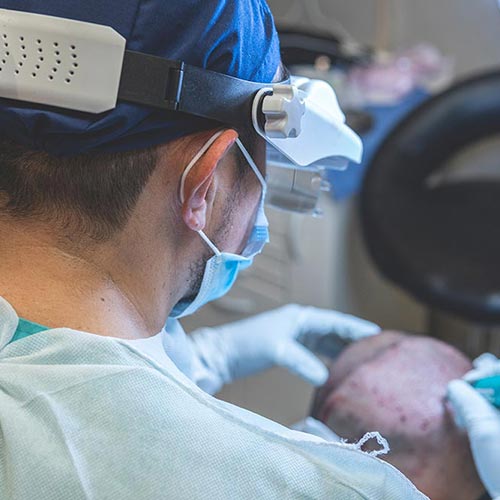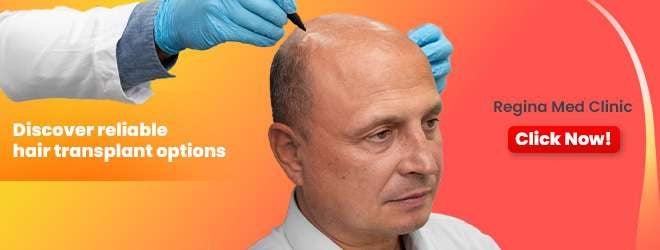What to Consider When Choosing a Shampoo After a Hair Transplant
The post-hair transplant period is critical for the healing of hair follicles and the healthy growth of new hair. Shampoos used during this time should be suitable for the sensitivity of the scalp and chosen to protect the hair follicles. Selecting the right shampoo is essential to prevent infections in the follicles and support the healing process. Using inappropriate shampoos can irritate the scalp and increase the risk of damage to the transplanted follicles.
During the first weeks, it is important to opt for special shampoos that maintain the scalp’s pH balance, prevent irritation, and accelerate the natural healing process. These shampoos help remove scabs from the scalp while providing relief to the skin. Choosing the wrong product can negatively affect hair transplant results, so careful attention should be paid to shampoo selection, and the doctor’s recommendations should always be followed.


İÇİNDEKİLER
Why is it Necessary to Use Special Shampoo After a Hair Transplant?
Special shampoos for post-hair transplant care contain ingredients that support the healing of the scalp. Since newly transplanted hair follicles are in a sensitive state after the procedure, the products used must be free of irritating substances. Special shampoos gently cleanse the hair follicles, moisturize the scalp, and prevent irritation. Standard shampoos often contain harsh chemicals such as sulfates and parabens, which can harm the hair follicles.
These special shampoos also help maintain the scalp’s natural barrier, reducing the risk of infection. Particularly during the first weeks after a transplant, products that support the scalp’s pH balance and have anti-inflammatory properties should be used. Such shampoos accelerate the healing process and ensure the transplanted area remains healthy.

Protective Features of Special Shampoos for Hair Follicles
Special shampoos used after a hair transplant minimize the risk of dislodging hair follicles, supporting the healing process. These shampoos gently cleanse the scalp, preventing the buildup of bacteria and reducing the risk of infection. They also contain vitamins and minerals that nourish the follicles.
Such shampoos clean without applying pressure to the follicles. As they do not produce excessive foam, they prevent scalp irritation and facilitate the scabbing process. Their specialized formulas aid in the healthy attachment of the hair follicles.
Soothing and Healing Effects on Sensitive Scalps
Sensitive scalps require special care after a hair transplant. Special shampoos with moisturizing and soothing ingredients calm the scalp and prevent irritation. Products containing components like aloe vera and panthenol reduce sensitivity and accelerate the healing process.
These shampoos gently remove scabs while maintaining the scalp’s natural moisture balance. With anti-inflammatory properties, they reduce redness and irritation, enhancing the patient’s comfort during recovery.
Role of Shampoos in Reducing Infection Risk
Hygienic care is essential to prevent infections during the post-transplant period. Special shampoos, with their antibacterial properties, clean the scalp effectively while preventing bacterial buildup. These products offer gentle cleaning without increasing scalp sensitivity.
They also avoid irritative chemicals that might pose a risk of infection. By supporting the scalp’s pH balance, they strengthen its natural defense mechanisms. Thus, selecting the right shampoo is critical for infection prevention in the post-transplant recovery process.
Which Shampoo Should Be Used After a Hair Transplant?
Shampoos used after a hair transplant should be suitable for the scalp’s sensitive condition and support the healing process. Products free of irritants such as sulfates, parabens, and alcohol should be preferred. Choosing the right shampoo helps protect the hair follicles and maintain scalp health.
Shampoos recommended by a doctor that contain vitamins and minerals can nourish the scalp. Products with ingredients like aloe vera, zinc, or panthenol provide soothing effects while supporting follicle attachment. Additionally, shampoos that align with the scalp’s natural pH balance are ideal.
Importance of Sulfate- and Paraben-Free Shampoos
Sulfate- and paraben-free shampoos are crucial during the post-transplant period to prevent scalp irritation. Sulfates, while cleaning the scalp, strip away natural oils, which can negatively affect the healing process. Parabens may irritate hair follicles and increase scalp sensitivity.
Shampoos free of these chemicals maintain the scalp’s natural balance. By supporting the healthy attachment of hair follicles, they accelerate the recovery process. Such shampoos are ideal for sensitive skin after a hair transplant.
Products Suitable for Scalp pH Balance
The pH balance of the scalp is vital for maintaining health after a hair transplant. Shampoos with a pH level around 5.5 preserve the natural structure of the scalp while preventing irritation. These shampoos cleanse without damaging the follicles, reducing the risk of infection.
Products that match the scalp’s pH balance help accelerate healing and prevent issues such as scabbing. They contribute to the healthy development of hair follicles, providing optimal care during the recovery process.
Shampoos with Vitamins and Nourishing Ingredients
After a hair transplant, the scalp requires more vitamins and nourishing components. Shampoos containing B7 vitamin (biotin), zinc, and keratin strengthen the hair follicles and contribute to the healing process. These products help nourish the scalp, supporting the healthy growth of newly transplanted hair.
Nourishing shampoos maintain the scalp’s moisture balance and prevent irritation caused by dryness. Regular use of these shampoos promotes the health of both the scalp and the newly transplanted hair.
Important Considerations for Using Shampoo After a Hair Transplant
Shampoo use after a hair transplant should protect the hair follicles without increasing sensitivity. During the first wash, the shampoo should not be applied directly to the transplanted area but should be foamed and gently applied to the scalp. Instead of massaging, use tapping motions to avoid pressure on the hair follicles.
Lukewarm water should be used for rinsing, and the scalp must be thoroughly cleaned. Avoid using high water pressure; rinse slowly and gently. Proper shampoo application during this process helps the hair follicles attach securely.
How Should Shampoo Be Used During the First Wash?
The first wash after a hair transplant is one of the most delicate stages. Shampoo should not be applied directly but should first be lathered and then gently applied to the scalp. The key during the first wash is to clean without applying pressure to the hair follicles. Gentle application prevents scalp irritation.
The water temperature is also crucial during the first wash. Lukewarm water soothes the scalp and supports blood circulation. Avoid quick movements during the wash, and rinse slowly. This ensures effective cleaning without damaging the hair follicles.
Protecting Hair Follicles During Shampoo Application
To avoid damaging the hair follicles during shampoo application, use tapping motions instead of massaging or rubbing. Movements like massaging or rubbing can dislodge newly transplanted follicles. Shampoo should be gently lathered and carefully spread across the scalp.
The application technique is as important as the product’s formula for protecting the follicles. Special shampoos ensure gentle cleaning without harming the follicles while also accelerating the healing process. Proper application is a crucial factor in achieving success after a hair transplant.
Sensitivity During the Shampoo Rinsing Process
Rinsing shampoo is another critical step in the post-hair transplant care process. Avoid letting water hit the scalp with high pressure during rinsing. Use lukewarm water and maintain a low water pressure to ensure the shampoo is thoroughly removed without harming the follicles.
The rinsing duration should not be prolonged, as excessive contact can irritate the scalp. Additionally, using recommended products after rinsing helps maintain the scalp’s moisture balance. A gentle rinsing process supports the safe and effective healing of the hair follicles.
Consult Now!
Fill out the form to get detailed information about the hair
transplant process and personalized solutions tailored for you!
How Does Shampoo Selection After a Hair Transplant Affect the Healing Process?
Choosing the right shampoo after a hair transplant is crucial for a healthy recovery. During the post-procedure period, hair follicles are highly sensitive, and the components of the shampoo directly impact the scalp’s healing process. Proper shampoo selection prevents infections in the hair follicles and supports the recovery process. On the other hand, using the wrong shampoo can lead to irritation, infections, and even follicle loss. For this reason, specially formulated shampoos should be used, particularly in the first weeks.
The right shampoos gently cleanse the scalp, reduce scabbing, and maintain the natural pH balance of the skin. Additionally, they nourish the hair follicles with vitamins and minerals, ensuring healthy attachment. Inappropriate products can cause chemical irritation and slow the recovery process. Choosing the right shampoo is essential for achieving successful hair transplant results.
Effects of Using the Wrong Shampoo on Hair Transplant Results
Using the wrong shampoo can significantly impact hair transplant results negatively. Shampoos with harsh chemical content can irritate the scalp and hinder follicle attachment. Furthermore, such products may increase the risk of inflammation in the follicles, delaying recovery. In the first few weeks, while the follicles are adapting to their new position, gentle care is required; improper shampoo selection jeopardizes this process.
Additionally, products that fail to clean without applying pressure to the follicles can disrupt the scalp’s natural healing mechanism. Using the wrong shampoo reduces the quality of hair transplant results and may lead to unwanted complications. Therefore, it is crucial to pay attention to the product’s ingredients when making a selection.
How the Right Shampoo Supports Follicle Attachment
The right shampoos contribute to the healthy attachment of hair follicles. Special formulas that maintain the scalp’s natural moisture balance and prevent irritation protect the follicles from damage. Special shampoos for newly transplanted hair improve blood circulation in the scalp, helping the follicles to settle securely.
These shampoos also contain nourishing vitamins and minerals such as biotin, zinc, and keratin, which strengthen the hair follicles. Proper shampoo selection accelerates the healing process and ensures more successful hair transplant results.
The Importance of Nourishing the Scalp During the Healing Process
Nourishing the scalp plays a critical role in the post-hair transplant period. Shampoos used during the healing process should contain the vitamins and minerals that the scalp requires. These nourishing ingredients help hair follicles heal faster and grow healthily. Without proper nourishment, the scalp becomes more sensitive, and the healing process may be prolonged.
Shampoos that nourish the scalp also prevent irritation and redness. Ingredients like panthenol, aloe vera, and vitamin E contribute to the repair process of the scalp. Proper nourishment of the scalp during healing guarantees the long-term success of the hair transplant results.
Why Are Expert Recommendations Important for Shampoo Selection After a Hair Transplant?
The right shampoo for post-hair transplant care should be tailored to the specific needs of the scalp. Expert recommendations are critical for choosing the appropriate products. Shampoo use after a hair transplant should follow a doctor’s guidance, as every patient’s scalp has unique requirements. Experts identify suitable ingredients for the healing process and provide personalized care suggestions.
Expert advice helps prevent complications caused by using inappropriate products. For instance, a doctor can recommend alternatives to avoid chemically harsh products that might lead to infections in the follicles. Selecting products under expert supervision ensures healthier outcomes for hair transplant results.
Determining the Best Product with Doctor’s Advice
Doctor’s advice is the most reliable way to choose the right shampoo after a hair transplant. Doctors assess the condition of the scalp and recommend products that align with the healing process. It is essential for these shampoos to be free from irritating chemicals and suitable for the scalp’s pH balance. Additionally, with a doctor’s recommendations, products containing nourishing ingredients can be selected.
Using the wrong product may negatively impact hair transplant results and extend the healing process. Products chosen under medical supervision protect the hair follicles and reduce the risk of infection. Therefore, following expert recommendations during the post-hair transplant period is essential.
Analysis of Individual Scalp Needs
Every individual’s scalp has unique characteristics and requirements. Therefore, shampoos used after a hair transplant must be chosen specifically for each person. Experts determine the most suitable products based on the scalp’s moisture balance, sensitivity, and healing process. This personalized analysis allows the scalp to heal without irritation.
Products selected without proper analysis may cause adverse effects on the scalp. Accurate analysis ensures the protection of hair follicles and supports the scalp’s natural healing process. Expert-supervised shampoo selection is essential for achieving successful hair transplant results.
Shampoos to Avoid After a Hair Transplant
Certain shampoos should not be used during the post-hair transplant period. Products containing sulfates, parabens, and alcohol can cause irritation and sensitivity in the scalp. Additionally, shampoos with high chemical content may damage the hair follicles and slow down the healing process. Such products should be avoided.
Uninformed product choices can disrupt the scalp’s natural barrier and increase the risk of infection. During the first weeks, no products other than those recommended by the doctor should be used. Instead of shampoos that increase sensitivity, pH-balanced and natural products should be chosen.
Common Mistakes in Shampoo Selection After a Hair Transplant
Avoiding common mistakes in shampoo selection is as important as choosing the right product after a hair transplant. Failing to check the ingredients of shampoos can lead to scalp irritation and delays in the healing process. The use of chemical-based products may harm hair follicles, negatively affecting the transplant results. These errors must be avoided during the selection process.
Another common mistake is not exercising caution when switching between different products. The sensitivity of the scalp should be considered during product changes. If care is not taken during this period, hair follicles may be damaged, and the healing process may be prolonged.
Choosing Shampoos Without Checking the Ingredients
One of the most common mistakes in selecting a shampoo after a hair transplant is failing to check its ingredients. Products containing sulfates, parabens, or alcohol can irritate the scalp and negatively affect the healing process. Choosing a shampoo without thoroughly reviewing its contents can damage hair follicles and increase the risk of infection.
To ensure the right product is selected, always check the shampoo’s ingredients. Opt for products with anti-inflammatory and moisturizing properties, avoiding those with high chemical content. This approach helps protect the scalp during the post-transplant period.
Potential Harms of Chemically Heavy Shampoos
Shampoos with chemical-heavy formulas strip the scalp of its natural oils, weakening the skin barrier. Ingredients such as sulfates and parabens can damage hair follicles and prolong the healing process. Additionally, these products may cause dryness, leading to increased scabbing.
Using chemically intensive shampoos also raises the risk of infection. To support the scalp’s healing process, such products should be avoided in favor of natural alternatives. Chemical-free shampoos promote the healthy attachment of hair follicles.
What to Consider When Changing Shampoos
Care must be taken when switching shampoos during the post-hair transplant period. Always consult your doctor before using a new product. If a product unsuitable for sensitive scalps is used, it may lead to irritation, itching, or an increased risk of infection. Monitor how the scalp reacts to the new shampoo closely.
When selecting a new shampoo, prioritize products with moisturizing and nourishing ingredients. Additionally, choose products that maintain the scalp’s pH balance during the transition period. This ensures the protection of hair follicles and supports the healing process.
Consult Now!
Fill out the form to get detailed information about the hair
transplant process and personalized solutions tailored for you!

